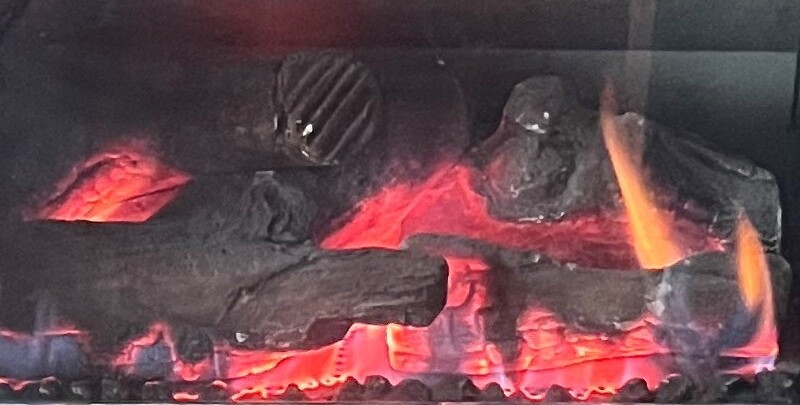
What is the Average Gas Heater Life Expectancy?
Choosing the right heating system for your home is crucial, especially in Australia where the climate varies widely. Understanding the average gas heater life expectancy can help you make an informed choice.
Gas heaters are popular for their efficiency and reliability, but like any appliance, they have a lifespan. This blog will explore the factors affecting the average lifespan of a ducted gas heater or gas furnace. We’ll look at the tell-tale signs it’s time to replace your system and offer practical tips for maintaining your gas appliance efficiently.
Understanding Gas Heaters
Gas heaters are essential to many Australian homes, providing reliable warmth during the cooler winter months. These systems include gas furnaces, ducted gas heating systems, and gas log fires, each with unique features.
The primary component of a gas heater is the heat exchanger, which transfers heat from the gas to the air circulated through your home. Understanding these different gas heating systems helps you make the right choice for your home. Regular maintenance and proper installation can significantly affect the longevity and efficiency of your gas heater, ensuring you get the most out of your heating system.
Factors Influencing Gas Heater Life Expectancy
Several factors influence the life expectancy of your gas heater:
- Regular maintenance, including cleaning and inspections by a licensed technician, is crucial to preventing premature failure. It can also reduce the risk of carbon monoxide poisoning.
- The quality of the initial installation and choosing the right gas furnace size for your home significantly impact longevity and performance.
- Usage patterns also matter; frequent use can shorten a heater’s lifespan.
- Ensuring energy efficiency through programmable thermostats and timely minor repairs can extend the life of your system.
By understanding these factors, homeowners can maximise their gas heating system’s efficiency and durability, ensuring consistent warmth and lower energy bills.
Common Warning Signs of a Limited Gas Furnace Lifespan
Recognising the common warning signs of an aging gas furnace can help avoid unexpected breakdowns. Keep an eye or ear out for:
- Strange rattling or clicking noises – these often indicate underlying issues.
- Yellow flames instead of blue ones – they can suggest a problem with the burner.
- Frequent repairs and rising energy bills – these point to your system working harder than it should.
- Temperature fluctuations and an unreliable pilot light – can point to a failing furnace.
- Monitoring carbon monoxide levels is crucial for safety, as older units are more prone to leaks.
Addressing these warning signs as soon as possible, whether in ducted gas heaters or natural gas space heaters, can save money. It can also keep your heating system running smoothly.
Extending Gas Furnace Life Expectancy
Extending your gas furnace lifespan involves several proactive steps.
Regular cleaning and timely minor repairs can prevent small issues from becoming major problems. Hiring licensed gas fitters for routine maintenance and inspections ensures your system operates efficiently and safely. Installing a programmable thermostat helps regulate usage and reduces wear and tear. Choosing energy-efficient settings and quickly addressing strange noises or performance issues can also make a big difference.
By taking these steps, homeowners can maximise their natural gas heater’s lifespan, maintain consistent warmth, and keep energy bills under control.
When to Replace Your Gas Heating System
Knowing when to replace your gas heater can save you from costly repairs and unexpected breakdowns.
If your furnace requires frequent repairs and your energy bills are steadily increasing, it may be time to replace it with a new furnace. Persistent issues like strange noises, uneven heating, or a pilot light that won’t stay lit are clear indicators. An ageing furnace that struggles to maintain a comfortable temperature is another sign.
Investing in a new, energy-efficient gas heater can improve your home’s comfort and reduce energy costs. Consulting a licensed technician can help you decide the best time to replace your gas heater.

Comparing Gas Heaters with Other Heating Systems
Comparing gas heaters with other heating systems can help you find the best option for your home.
Gas heaters are often more cost-effective and efficient than electric furnaces, especially with the availability of natural gas in Australia. However, electric heaters and heat pump-powered heaters offer alternative benefits, such as lower initial installation costs and reduced carbon emissions. Natural gas heating systems provide consistent warmth, but it’s essential to be aware of safety concerns like carbon monoxide poisoning and gas leaks.
Weighing the pros and cons of each system, including energy efficiency and maintenance needs, can guide you in choosing the most suitable heating solution for your home.
Benefits of Regular Maintenance for Gas Heaters
Regular gas heater maintenance offers numerous benefits that can enhance its performance and average lifespan.
- Scheduling annual inspections with licensed gas fitters ensures that all components, including the heat exchanger, are functioning correctly and safely.
- Routine cleaning helps to keep the heat exchanger free of dust and other debris that can hinder efficiency and cause wear.
- Regular maintenance can also identify minor issues before they escalate into major problems, preventing costly emergency repairs.
- Additionally, well-maintained natural gas systems operate more efficiently, leading to lower energy bills.
By committing to regular maintenance, you can enjoy a reliable, safe, and energy-efficient heating system throughout the year.
Final Thoughts on Gas Heater Life Expectancy
Understanding the life expectancy of your gas heating system is crucial for maintaining a warm and efficient home. The average gas furnace life expectancy generally ranges from 10 to 20 years.
Several factors influence this lifespan, such as the quality of the initial installation, the design and manufacture of the heating system, and the type of fuel used. Regular maintenance, recognising warning signs, and knowing when to replace your system can save you money and ensure your home stays comfortable.
Gas heating systems offer reliability and efficiency but do require proper care and attention. By staying informed and proactive, you can maximise the lifespan of your gas heater, reduce energy bills, and avoid unexpected breakdowns. Investing in a new, energy-efficient system may ultimately be the wise decision. One that pays off in long-term comfort and savings.
Please note: This information is provided for advice purposes only. Regulations differ from state to state, so please consult your local authorities or an industry professional before proceeding with any work. See our Terms & Conditions here.
Published: 2024-05-14

































